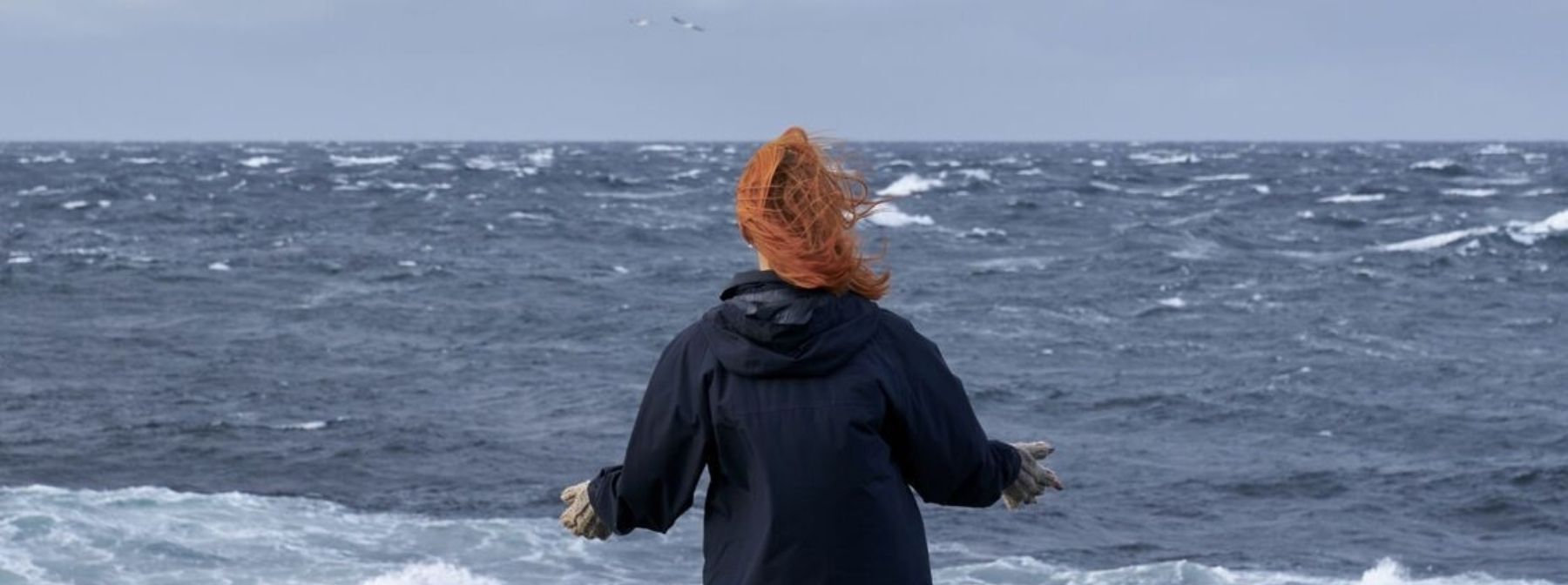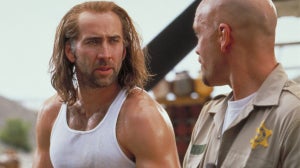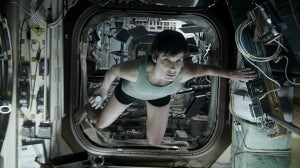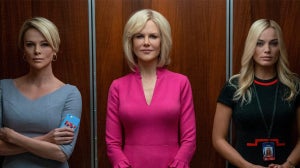
She told Zavvi: “I really didn't want to turn Rona into a caricature; I always wanted to make sure that there was a weight to how she delivered her lines and held herself. There was a scene in Lady Bird where my character gets drunk for the first time, and before we shot it, Greta instructed me to remember that when people are drunk, you don’t want anybody else to think you are.
“They don’t want to look under the influence, so they must be as specific and clear and pronounced in everything they say as possible, so they believe they’re fooling everyone around them. That really stayed in my head, and that was the advice I built this whole performance around.”
Adapted from the memoir of the same name by Amy Liptrot, who also co-wrote the screenplay, The Outrun is an intimate character study following a young woman battling her relationship with alcohol, returning to her family home in the Orkney Islands to start a new life after a stint in rehab.
Ronan, who made her debut as a producer for this project, hasn’t shied away from describing other films that deal with addiction as “cliched”, and had a check list of traits she knew this should avoid.
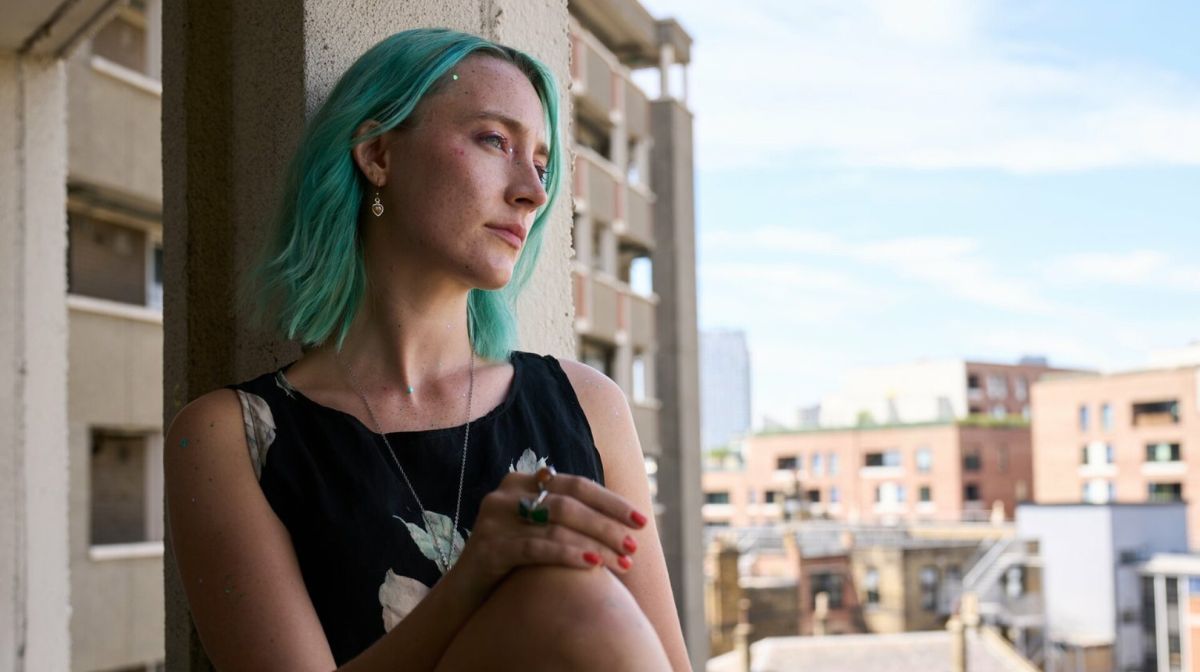
She continued: “The fact that we're following a young woman in her late 20s in recovery from alcoholism is something that you never see in a movie. And yes, she has a romantic relationship, which is very prominent in the movie, but that's not the reason why she turns to alcohol, that’s just a part of her journey as an individual.
“I think we're used to seeing older men go through this experience, or a woman post-divorce - that's always the way it's been shown on screen. And we wanted to just turn that on its head and show every facet of this person's life.
“Also, whilst this story focuses on addiction, it was important that we delved into a life beyond that and focus on the supporting characters around her; it’s an addiction story, but it feels rich enough to function as more than that.”
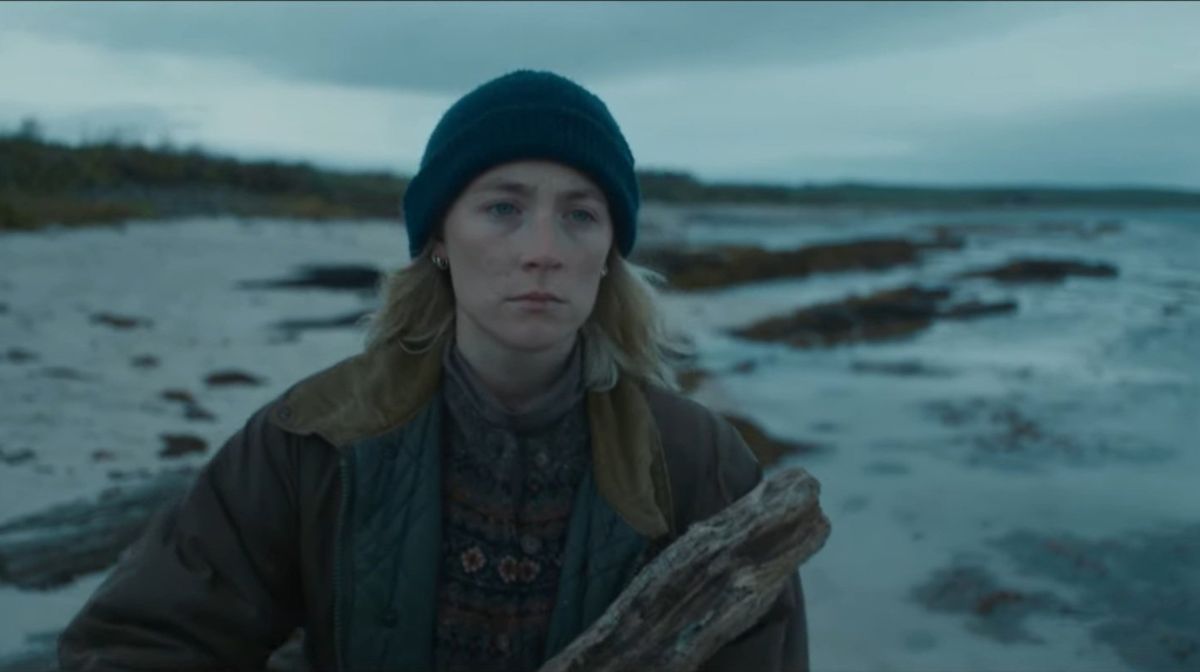
Director Nora Fingschiedt made sure that the supporting cast was largely comprised of non-professional actors who are in recovery, aiming for a “documentary feel”. This helped the film continuously evolve during shooting.
Ronan explained: “A lot of the actors that I work with, particularly in the rehab section of the movie, are all in recovery. This meant I could speak to them directly every day and ask if they found the scenes we were shooting were authentic and accurate, and if they could relate to the emotions of my character’s journey – they were the most amazing teachers.
“Amy Liptrot was also included in that, she was always there when we needed her to be, but also gave us the space to let the film evolve and make it our own. Her book was a great reference point, as she goes deep into the experience and psychology of someone going through that in a way that isn’t clinical; it’s emotional, visceral, almost poetic.”
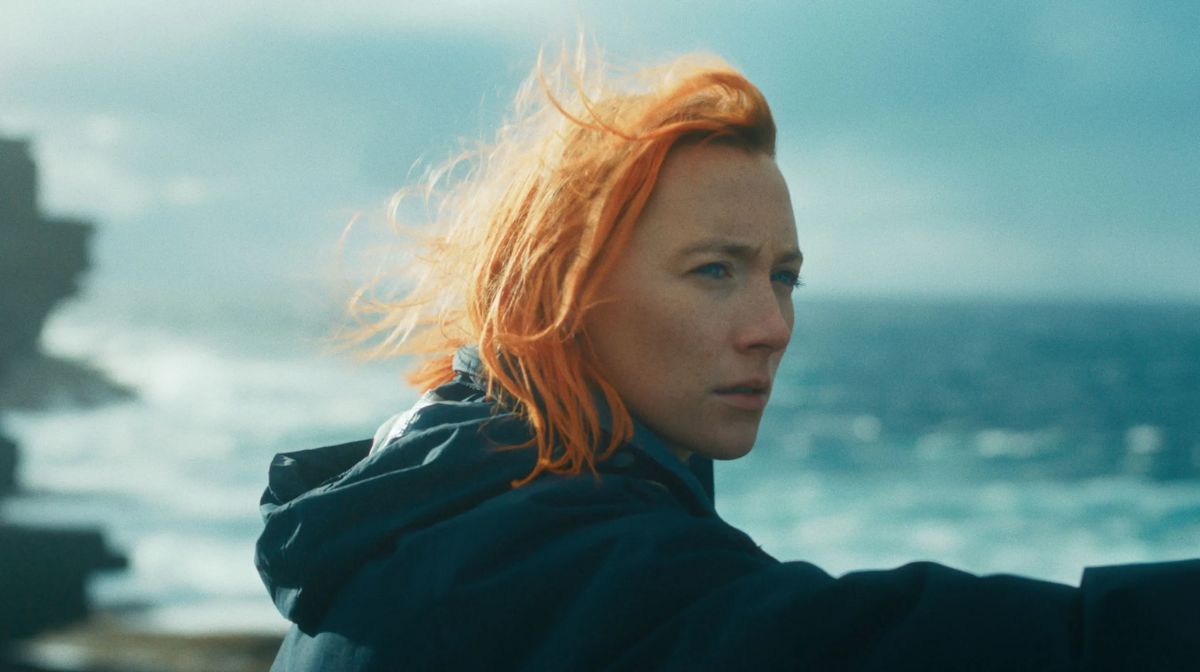
Fingschiedt shared Ronan’s belief that this movie couldn’t have been made without Liptrot as a collaborator.
She told Zavvi: “We collaborated super closely, which isn’t always the case when there is a film made from a book, but because it's a memoir, and it's such a personal story and includes the whole family, there was no other way. Amy read every draft of the script and gave us feedback, and had access to the rushes of everything she filmed – she saw every cut of this movie and we’d spend hours on the phone discussing them.
“It was a very close collaboration throughout. Even though she wasn’t with us for every step, she was always accessible when we needed her.”
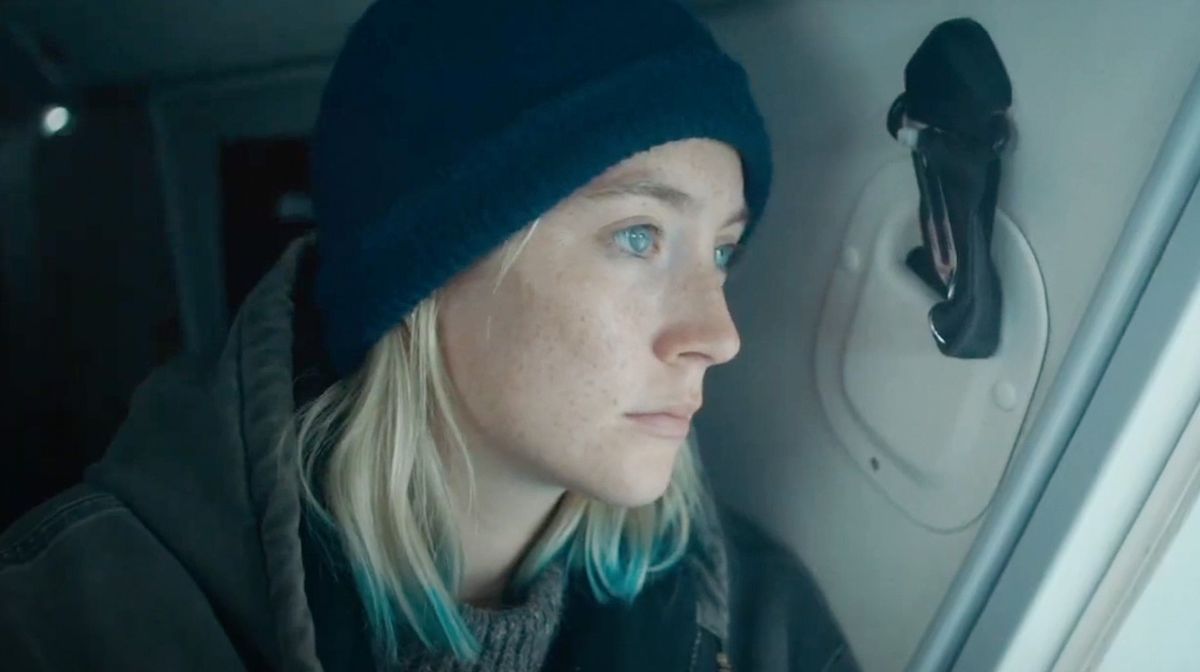
However, Liptrot wasn’t available to help Ronan prepare for one key skill she needed for her performance: learning how to birth lambs, to mirror her own job as a farmer during the early stages of her recovery.
“The sheep shed you see in the film is the actual one where I worked, helping my dad at lambing time. I couldn’t be there to help though, so a local farmer spent a lot of time with Saoirse to prepare her; that’s his real flock you see onscreen, and they shot during their lambing season – those were the sheep they were going to sell, so it was a big deal that they let the film team into their business at that time.”
For Ronan, it was important that the film showed the highs of Rona’s relationship with alcohol as well as the lows, to reflect the realities of how celebrations and nights out with friends can revolve around it. British and Irish people have long been stereotyped as problem drinkers, and the actress finds it fascinating that it arrives in cinemas alongside statistics showing younger generations in both countries are drinking less than ever.
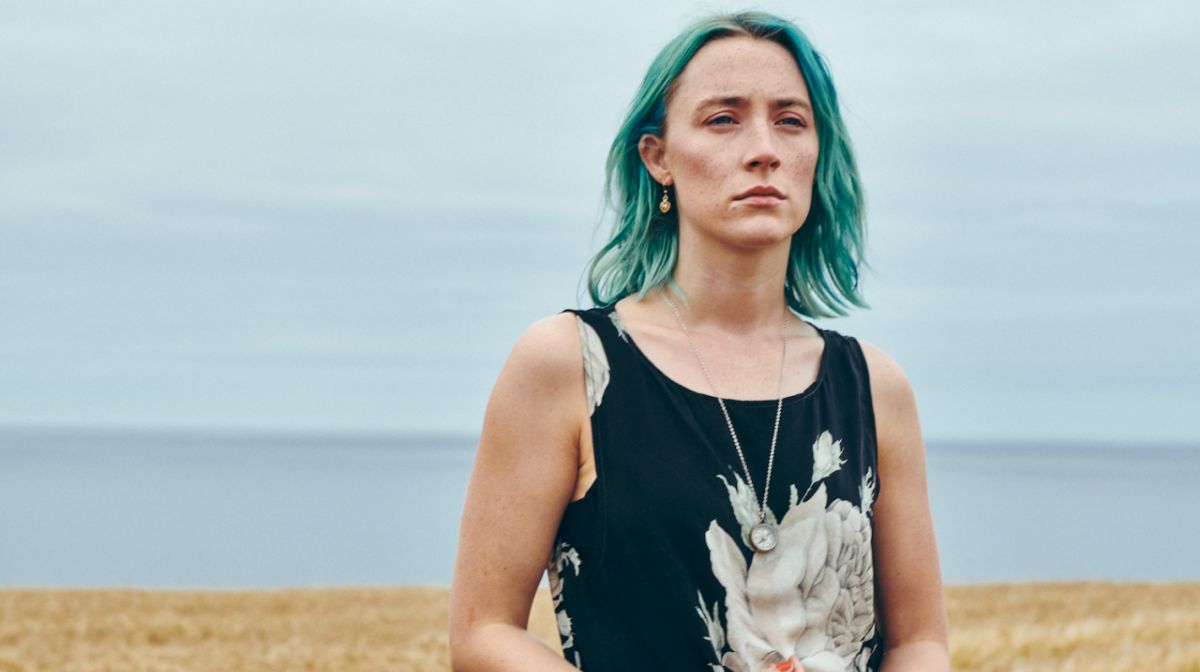
Her co-star, I May Destroy You breakout Paapa Essiedu, believes this changing cultural context is important for how we view this story.
He explained: “Saoirse is completely spot on to highlight the different ways alcohol consumption is viewed in different cultures, as early relationships with alcohol can be formed by factors such as education, or alcohol being defined as cool to young people.
“However, I think the beauty of this movie is that it steps back and shares a portrait of this woman’s life without judgement, inviting the viewer to consider their relationship with alcohol instead of challenging them or provoking them to come to a certain answer”.
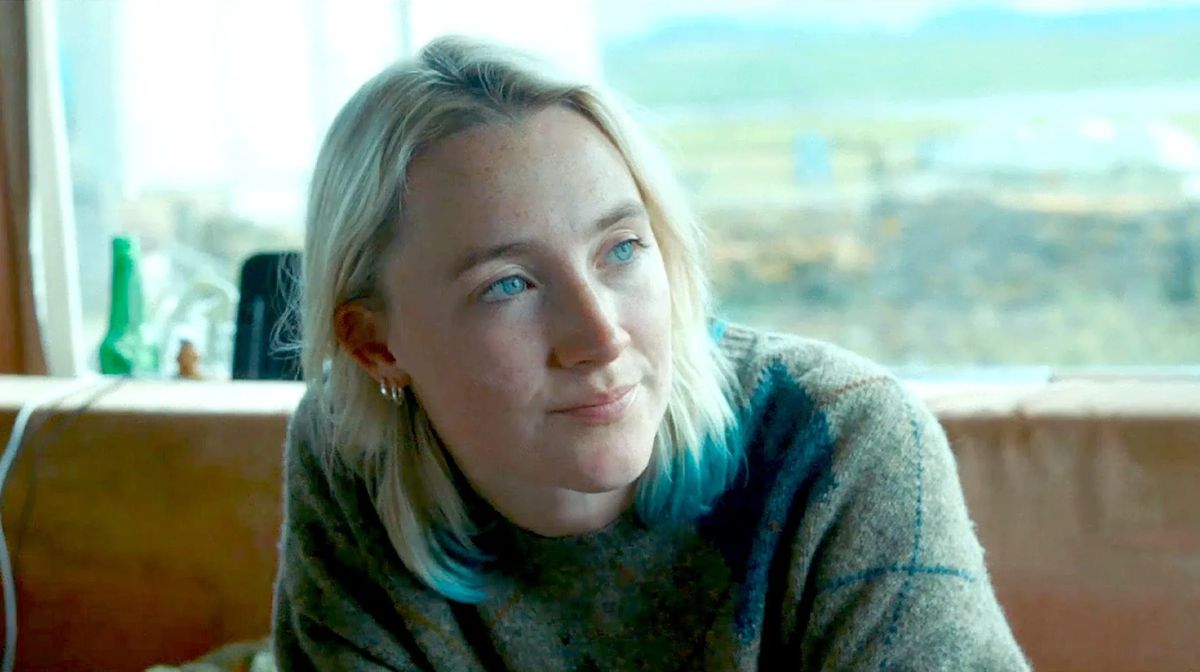
This approach has already sparked conversations amongst audiences who have seen the film at early screenings, with Liptrot speaking to several viewers who have had intense personal reactions to the film.
“At screenings I’ve attended, people have come up to me afterwards to talk about addiction in their family, which is a common thing for everyone – even those who might not be interested in seeing this film know someone who is affected by addiction.
“I've spoken to so many people who have had these personal responses over the last eight years through the book, and it was those reader responses which encouraged me that this material was worth being translated into a film.”
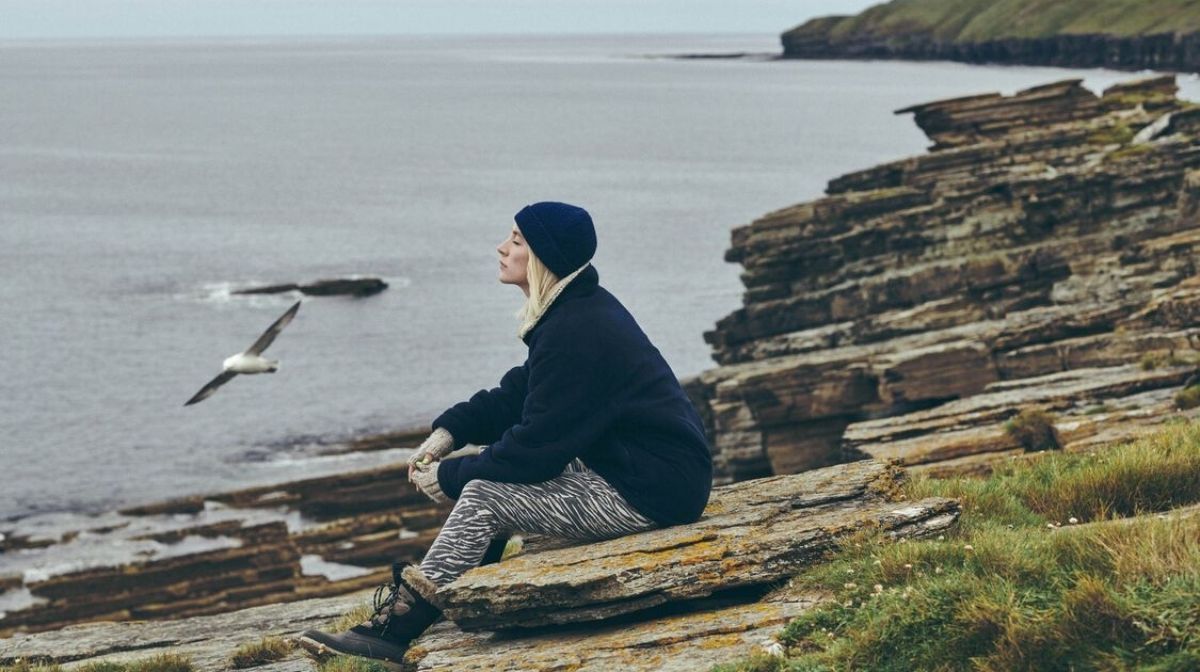
Ronan made her debut as a producer with The Outrun but admits that this was a skill she needed under her belt before she could set about achieving her lifelong ambition: stepping into the director’s chair.
“Even before I was acting, directing was always my goal. I don’t necessarily want to be a producer, as it’s a hard job, and you become the target a lot of the time if things go wrong, so I don’t know if I’d want to do that full time!
“I want to continue developing my own projects, and being a producer here helped me have insight into pre-production in a way that I hadn’t as an actor, even if I was attached to a project from its early stages, so learning that will only serve me when I hopefully direct. I think for myself and for (husband/producing partner) Jack Lowden, there are so many stories we want to tell and places we want to highlight which rarely get seen onscreen, like we did with the Orkney Islands here.
“I want to tell stories back in Ireland that don’t revolve around the Troubles or the Potato Famine, to show that the country I come from is more modern and developed than how it’s stereotyped onscreen. I want to be a part of that next wave of Irish filmmakers, and learning how to develop my own projects is a tool to help achieve that...”
The Outrun is released in UK cinemas on Friday, 27th September
